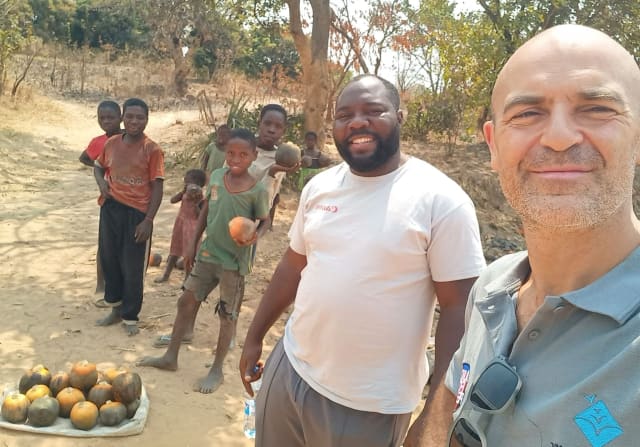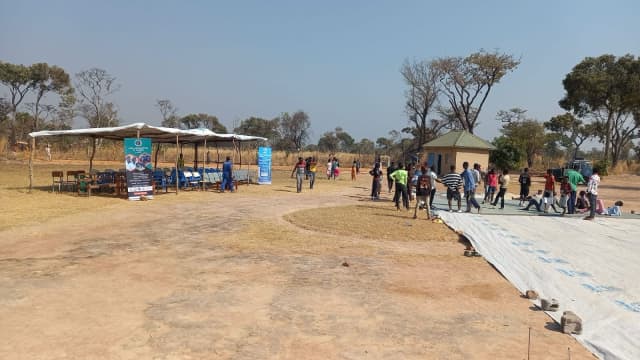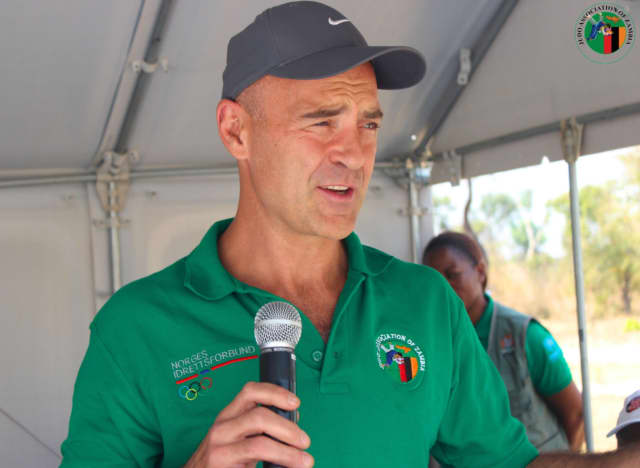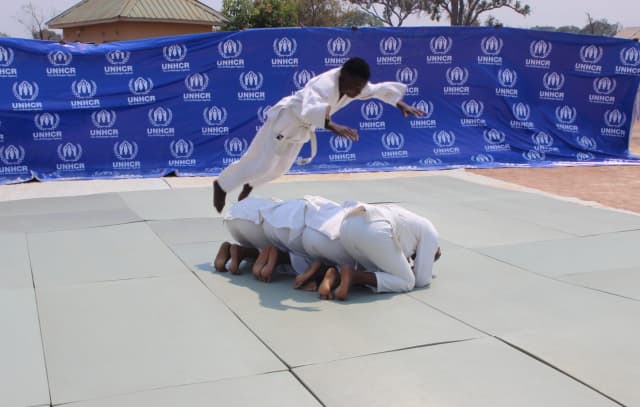"Travelling from Lusaka, the green and peaceful capital of Zambia, to Mantapala refugee camp further north near the DRC-Tanzanian border, is not easy. It takes a good dose of grit to face the 18 hours that takes you there.
The terminus was the Mantapala Refugee Settlement where, after years of careful planning, the Judo Association of Zambia (JAZ) was finally launching the 3rd Judo for Peace programme in the country, effectively covering all the major refugee camps and settlements in Zambia.
The Mantapala Refugee Settlement is a rare example of good cohabitation of refugee populations (8,932 individuals), people living in peace among the 11 villages of the Mantapala rural area (11,887 individuals). The UNHCR, The Zambian Ministry of Home affairs and non-profit organisations have been struggling to serve the communities living in the area due to a lack of major infrastructures, even though schools and basic health care are working correctly.
In 2020 the JAZ underwent a first mission in the area, had preliminary talks with UNHCR and agreed to open a programme there. The pandemic and an unfortunate road accident on the way back to Lusaka, involving the president and secretary general of the JAZ, did not demotivate the unremitting heart of the JAZ; plans were made and actions were taken to see Judo for Peace get to work in Mantapala.
Last month national coach, Joshua Kanyemba was deployed in the camp where he has already put IJF donations of tatami and judogi to use for the benefit of refugee and local children.
On the big day, a sunny morning in August, we were officially presenting the Judo for Peace programme to the local communities; a large group of representatives had been gathered (UNHCR, government authorities, traditional leaders) and even a delegation of judoka from the Mayukwakwa Refugee Camp joined in. The atmosphere was inspiring. After playing the Zambian national anthem the judoka took action, presenting their beloved sport to a new public who were curious and interested to see youngsters using their bodies in such a new way. Breakfalls, throws and other acrobatics were part of the judo demonstration and the crowd cheered and applauded!
The Olympic Games in Paris inspired many of the talks that followed the judo demonstration. Ms Ireen Babu (UNHCR) reminded the public that judo is a way of life while Mr Ng'uni Mabvuto confirmed once more the strong will of the judo community to support the Judo for Peace programme in the settlement.
Finally, I commended the excellent work of the JAZ, highlighting them as a role model federation among Judo for Peace programmes. The JAZ is an example of how important it is to work with partners to mobilise resources for the benefit of communities in need. I'm convinced that the work of the JAZ with the coverage of Judo for Peace activities in all refugee hotspots, will inspire other national federations to make judo accessible where it is more than needed.
We left the settlement knowing that a seed of peace has been planted and that we will nurture and care for the fruit that it will bear, for a better future and for a more fair society."




